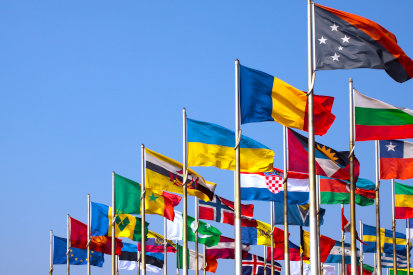The United Nations Office on Drugs and Crime (UNODC) has unveiled its strategic approach for the next five years, reinforcing its mission to contribute to global peace, security, human rights, and development. This ambitious plan focuses on building a world free from drugs, crime, corruption, and terrorism through effective, efficient, and accountable support to Member States. UNODC aims to empower countries to create just, inclusive, and resilient societies that uphold the 2030 Agenda for Sustainable Development.
A global approach to global challenges
The COVID-19 pandemic revealed the interconnectedness of global challenges, intensifying issues of fragility, crime, and terrorism, and highlighting profound social inequalities. This crisis emphasised the need for cohesive, international responses, underscoring the urgency for countries to collaborate and share knowledge. UNODC is committed to fostering global solutions, enhancing multilateral cooperation to tackle drugs, crime, corruption, and terrorism, with a special focus on inclusivity, human rights, and empowerment for all, especially children, women, and youth.
Pillars of the UNODC strategy
UNODC’s strategy focuses on key thematic areas, each designed to address specific issues related to drugs, crime, and justice. The organisation will deploy innovative methodologies and leverage advanced technologies to drive solutions in the following areas:
Drug prevention, treatment, and care
UNODC is prioritising preventive approaches, alongside robust treatment and care systems, to curb the impact of drug misuse on societies. This includes enhancing criminal justice mechanisms to counter trafficking, improving access to controlled medication for those in need, promoting sustainable alternatives to illicit drug cultivation, and strengthening international law enforcement collaborations to monitor illicit drug markets effectively.
Transnational organised crime
To combat organised crime, UNODC aims to develop and implement legal frameworks for addressing transnational organised crime, refine investigative and prosecutorial methods, and offer victim assistance. Enhanced responses to cybercrime and timely trend monitoring are integral to these efforts, as UNODC anticipates the increasing role of digital platforms in criminal activities.
Corruption and economic crime
Recognising corruption as a barrier to development and equality, UNODC focuses on strengthening legal and institutional frameworks to prevent corruption and economic crimes. Collaboration at local, national, and international levels is essential, with an emphasis on the fast-tracked implementation of recommendations from the UN Convention against Corruption (UNCAC) review mechanism. This initiative promotes transparency and trust among Member States, facilitating cross-border cooperation against corruption.
Counter-terrorism
UNODC supports Member States in developing criminal justice responses to terrorism that are effective and rights-based. Increasing international cooperation, particularly concerning the financing of terrorism, is critical. The organisation also prioritises preventive programs targeting violent extremism and promotes measures to protect and support victims of terrorism.
Crime prevention and criminal justice
To strengthen crime prevention and improve access to justice, UNODC focuses on evidence-based, community-driven approaches. This includes improving violence prevention, ensuring gender-responsive justice, addressing violence against children, and reforming prison systems to ensure humane and safe custody. These initiatives aim to protect vulnerable populations and foster a justice system that is accessible and fair.
Building partnerships for lasting impact
Central to UNODC’s strategy is a flexible and dynamic partnership model. Engaging with Member States, civil society, academia, and other stakeholders, UNODC is dedicated to creating sustainable, locally-owned solutions to combat the societal impacts of drugs, crime, corruption, and terrorism. Political and financial partnerships, transparency, and continuous engagement serve as the backbone for achieving these strategic goals.
Accountability, transparency, and enhanced communication
UNODC is committed to accountability, transparency, and continuous evaluation of its efforts. The organisation plans to expand its resource mobilisation and partnership efforts and to improve both financial and substantive reporting. Evaluation will play a crucial role, as the insights and recommendations from assessments will guide future strategies and improvements.
Recognising communication as a vital component, UNODC will enhance its communications capabilities, ensuring that stakeholders are informed of its successes and challenges alike. This approach is integral to gaining the trust and support of the international community and strengthening UNODC’s capacity to fulfill its mission.
Looking forward: A safer, fairer world for all
UNODC’s five-year strategy is a comprehensive roadmap towards achieving its mission of a safer, more just world, grounded in the principles of peace, security, human rights, and development. Through an innovative, multi-faceted approach to drugs, crime, corruption, and terrorism, UNODC stands ready to support Member States in their pursuit of just, inclusive, and resilient societies. This mission aligns with the global vision of the 2030 Agenda for Sustainable Development, reaffirming UNODC’s role as a key player in building a world that leaves no one behind.



